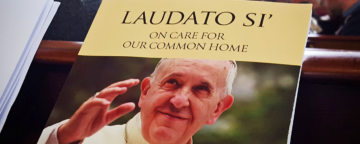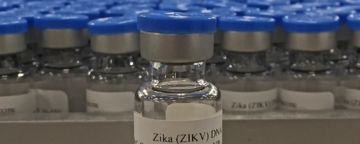In a commentary in Nature Climate Change, two recent APPC postdocs say the encyclical stressed moral values that appeal to liberals but not the three values -- sanctity, authority and loyalty -- that resonate with conservatives.


In a commentary in Nature Climate Change, two recent APPC postdocs say the encyclical stressed moral values that appeal to liberals but not the three values -- sanctity, authority and loyalty -- that resonate with conservatives.

How can the public’s confidence in science be strengthened? A new study finding that public confidence in science spiked following coverage of the Zika vaccine trial in 2016 suggests a way to improve trust in science on a more sustained basis.

A study of the Pope's encyclical on climate change conducted by researchers at the Annenberg Public Policy Center has been featured as a "research highlight" by the journal Nature Climate Change.

Oxford has published The Handbook of the Science of Science Communication, the first in a series overseen by the Annenberg Public Policy Center's Science of Science Communication program.

In a new report, a group of leading scientists, academics and editors of scientific journals call for greater transparency and uniformity in the way author contributions are presented in science studies.

A study found that the Pope's encyclical on climate did not directly influence people’s beliefs about climate change but did so indirectly by raising the Pope's credibility on the issue.